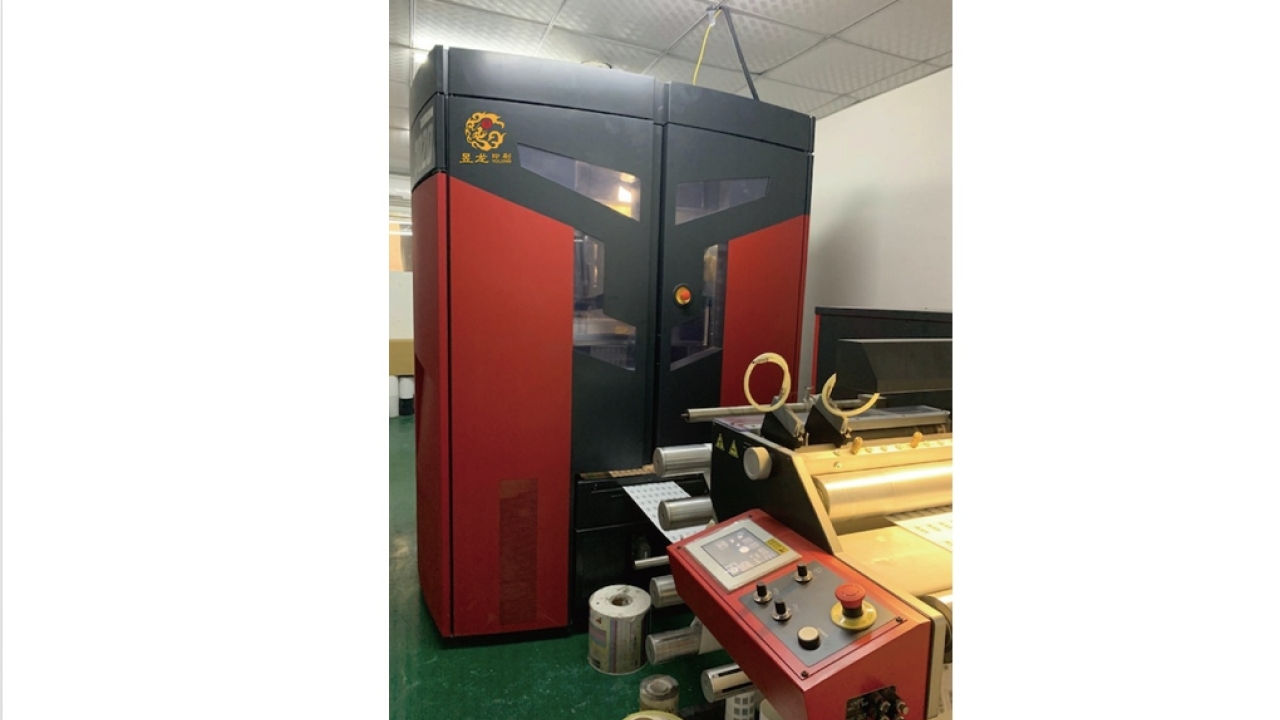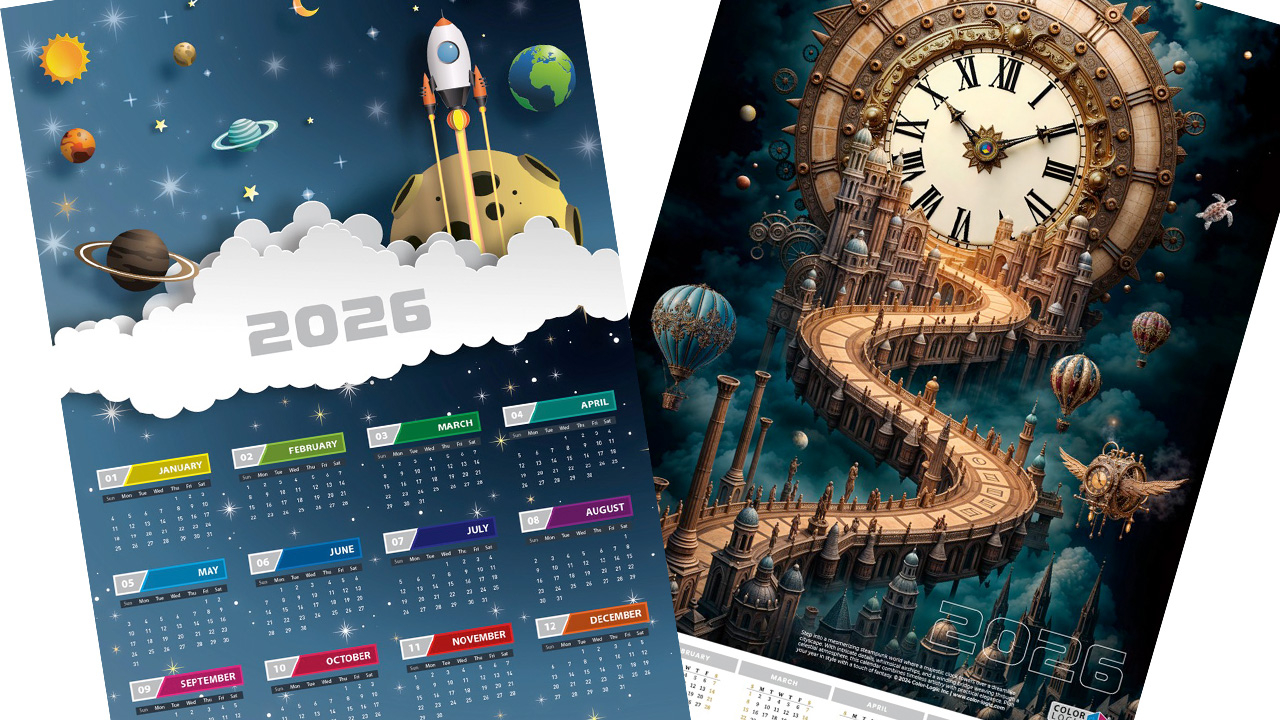Yulong offers digital and conventional one-stop shop

Today Yulong Printing has 70 employees and a factory floorspace of 2,500 sqm. Annual output value in 2019 was up to 25m RMB (3.8m USD).
Labels now account for 35 percent of Yulong’s total business, with the proportion of paper to film labels at 60:40. The main end use markets for label products include household chemicals, food and beverage, sanitary, textiles and garments.
The company’s conventional machinery pool includes a Ryobi 4-color press, a Heidelberg CD74 5-color press, one 6-color semi-rotary offset press and a range of post-press equipment.
Back in 2016 Yulong Printing installed the first Xeikon 3020 digital press in Fujian Province, and the big story is how the company has integrated digital with its existing conventional presses. Comments Li Haiyin, Yulong Printing general manager: ‘This is Xeikon’s entry-level 5-color 10-inch wide digital press. We purchased this machine mainly to meet the needs of increasingly short-run orders. Besides this, the maximum width of our existing coating, stamping and die-cutting production lines is also 10 inches, which perfectly matches with the width and speed of this machine.’
Intelligence
Li says the high degree of intelligence and automation in the Xeikon press has been a key feature. ‘Where with conventional presses the final printing result and product quality depend to a large extent on operators’ experience, the Xeikon press is very easy and simple to run, which significantly reduces the dependency on operators.
‘The color in digital printing remains more stable and consistent over multiple production runs and among different batches. This brings tremendous benefits to our customers who can order in batches only when they need the labels. This facilitates more flexibility for our SME customers. Digital printing brings dual benefits, since it also shortened our order processing time, especially for those orders with tight lead times.’
Because the Xeikon 3020 digital press uses heat to fuse dry toner particles to the substrate, this puts certain performance requirements on adhesive materials – especially the need to prevent adhesive spreading after the heating process.
In spite of this, Li is still happy with the range of materials the press can handle. ‘The Xeikon 3020 digital press has a very extensive application scope allowing us to handle materials such as PP, PET, PE, paper and metallized paper. The Xeikon ICE toner also gives us confidence for thermalsensitive materials.’
Li gives a very interesting cost comparison of digital versus conventional printing. ‘Calculating the investment amount, material and consumables costs only, current digital printing costs are undoubtedly higher than conventional printing,’ says Li. ‘However, as a corporate leader, I need to consider things from all aspects. Once you take into account the cost of operators, plate and materials, lead time and unit cost, we find digital printing has clear overall cost benefits when manufacturing short-run orders.’
Yulong Printing has also successfully developed a variable data and personalized label printing business for the Xeikon 3020 digital press.
Recently, the company has been exploring a new business model which combines digital and conventional printing. ‘We initially intended that digitally printed labels and conventional package printing would be two separate business units,’ explains Li. ‘However, as our business developed, we found many brand owners require both labels and packaging. As a printing service provider, we can strengthen our relationship with customers by meeting their different packaging demands at the same time.’
The digital press currently fulfills 90 percent of Yulong’s label orders, says Li. ‘We use digital for label orders less than 200 meters, except where label products require spot colors.’
After the outbreak of Covid-19, the demand for anti-epidemic products such as disinfectant and sanitizer labels increased sharply, which helped make up for the loss of other business due to the epidemic. Indeed, Yulong Printing’s business volume in the first half of 2020 was almost the same as in the same period of 2019.
The sudden outbreak of the epidemic had a profound impact on Li’s thinking. ‘I realized that in the future our company must grow towards digitization of production with higher automation and less human intervention.’ For this reason, Yulong Printing plans to invest in hybrid press technology which combines both digital and conventional technology as well as investigating digital die-cutting.
Stay up to date
Subscribe to the free Label News newsletter and receive the latest content every week. We'll never share your email address.


